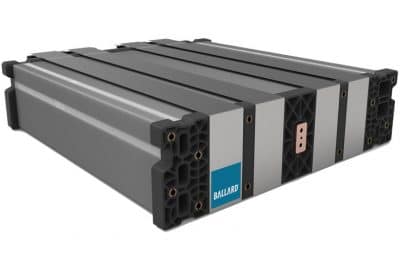Ballard (Nasdaq: BLDP) had its very own October surprise, which caused the stock to take a nosedive. Though worse than expected, the USD 0.03 net loss per share and revenues of as little as USD 21.6 million weren’t to blame for the slump. Neither was the company’s low cash level of USD 23.2 million, reduced by inventory and AFCC asset purchases, nor the 2018 revenue target, revised downward to somewhere between USD 90 million and USD 95 million. What caught the market flat-footed was Ballard’s decision to remove the remaining value of a multi-year contract with joint-venture partner Guangdong Synergy from its backlog, which dropped from more than USD 280 million to around USD 120 million. Since the contract was worth north of USD 138 million, it couldn’t have been an easy choice to make, albeit other key factors, such as the sale of Protonex assets and deliveries already made, need to be included to figure out how much of an impact this had on the company.
The contract value was removed because of Synergy’s inability to meet its purchase commitment regarding membrane electrode assemblies, apparently for a variety of reasons. It seems as if the Chinese government hadn’t been fast enough to grant funding for fuel cell buses, and some communities are reportedly taking a long time to invite bids. Plus, the fueling station network might not be growing as rapidly as expected.
Weichai buys into Ballard
Another point, with more profound consequences, is that, through a capital raise, a Chinese corporation called Weichai, which manufactures around 600,000 engines a year, purchased a 19.9 percent ownership position in Ballard for USD 163 million. The decision could pit two of the business’s shareholders against each other, since Ballard and Weichai have announced plans to offer LCS stacks for trucks, buses and other vehicles to customers sometime this year. According to Ballard’s most recent conference call, however, the company is speaking with both Weichai and Synergy, which could mean all three may enter into partnership. Weichai is also a bus maker, so the idea isn’t that far-fetched. In a best-case scenario, Ballard could regain the backlog it lost.
That Weichai, the world’s biggest manufacturer of diesel engines, has purchased Ballard stock is the best piece of news the fuel cell producer could hope for. The Chinese corporation, which generates revenues topping USD 23 billion a year, owns 45 percent of Kion, with 200,000 units produced annually the number two forklift truck manufacturer in the world. At around the same time, Broad-Ocean paid USD 20 million to prevent the dilution of its 9.9 percent ownership stake in Ballard.
Broad-Ocean produces around 50 million engines a year. It has partnered with Ballard to manufacture fuel cell stacks for trucks and other vehicles in China.
Weichai intends to become one of the People’s Republic’s leading companies in the market for heavy-duty fuel cell applications. Its commitment to build and supply 2,000 fuel cell modules for commercial vehicles is further proof of that. The corporation was also reportedly contemplating investments in producers of electrolyzers and hydrogen fueling stations to become a one-stop source for all of its customers’ fuel cell needs. The money from Weichai and Broad-Ocean upped Ballard’s cash reserves to USD 200 million, or around 40 percent of its market cap.
At the IAA Commercial Vehicles, it was said that Ballard’s latest fuel cell stack generation, called LCS or liquid-cooled stack, for trucks and forklifts would be available in 2019.
…
read more: the H2-inernational issue will be published in February 2019
Risk warning
Share trading can result in a total loss of your investment. Consider spreading the risk as a sensible precaution. The fuel cell companies mentioned in this article are small and mid-cap ones, i.e., they may experience high stock volatility. This article is not to be taken as a recommendation of what shares to buy or sell – it comes without any explicit or implicit guarantee or warranty. All information is based on publicly available sources and the content of this article reflects the author’s opinion only. This article focuses on mid-term and long-term prospects and not short-term profit. The author may own shares in any of the companies mentioned in it.
Written by Sven Jösting


























0 Comments
Trackbacks/Pingbacks